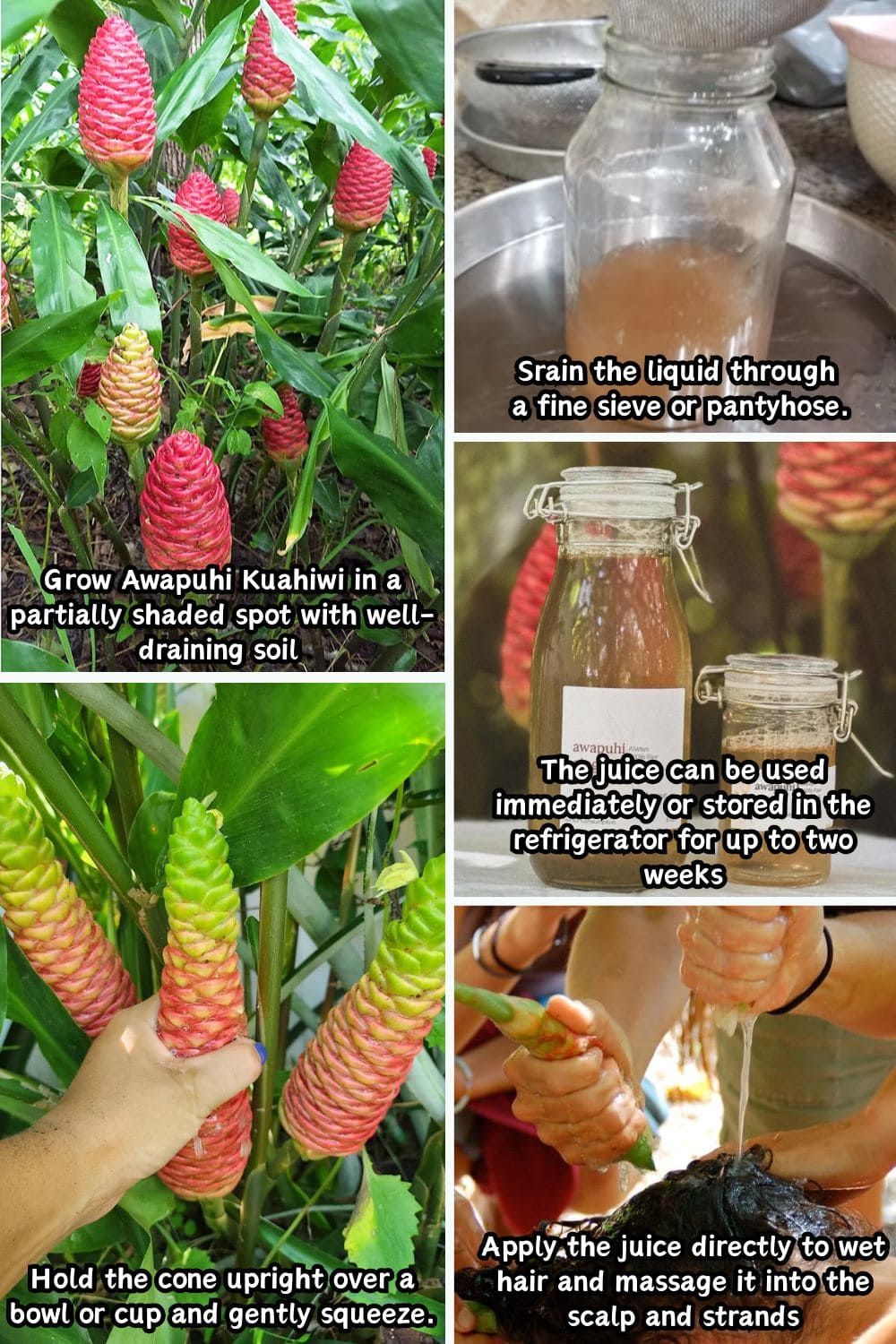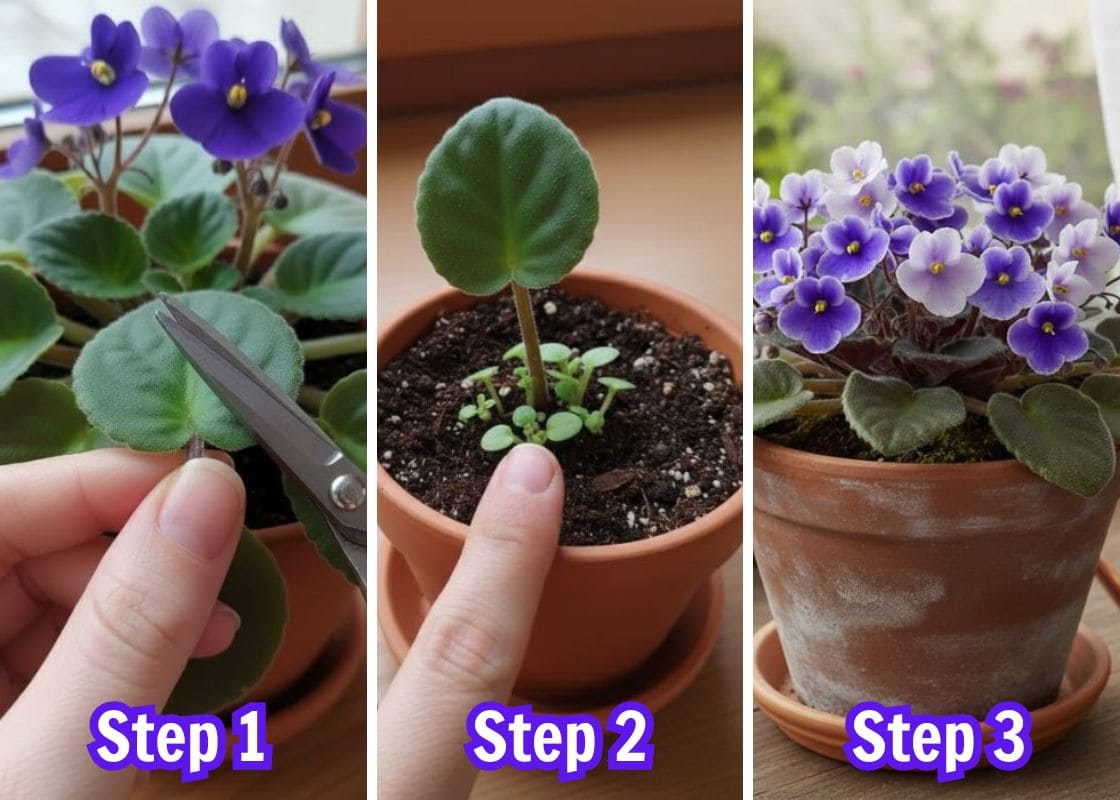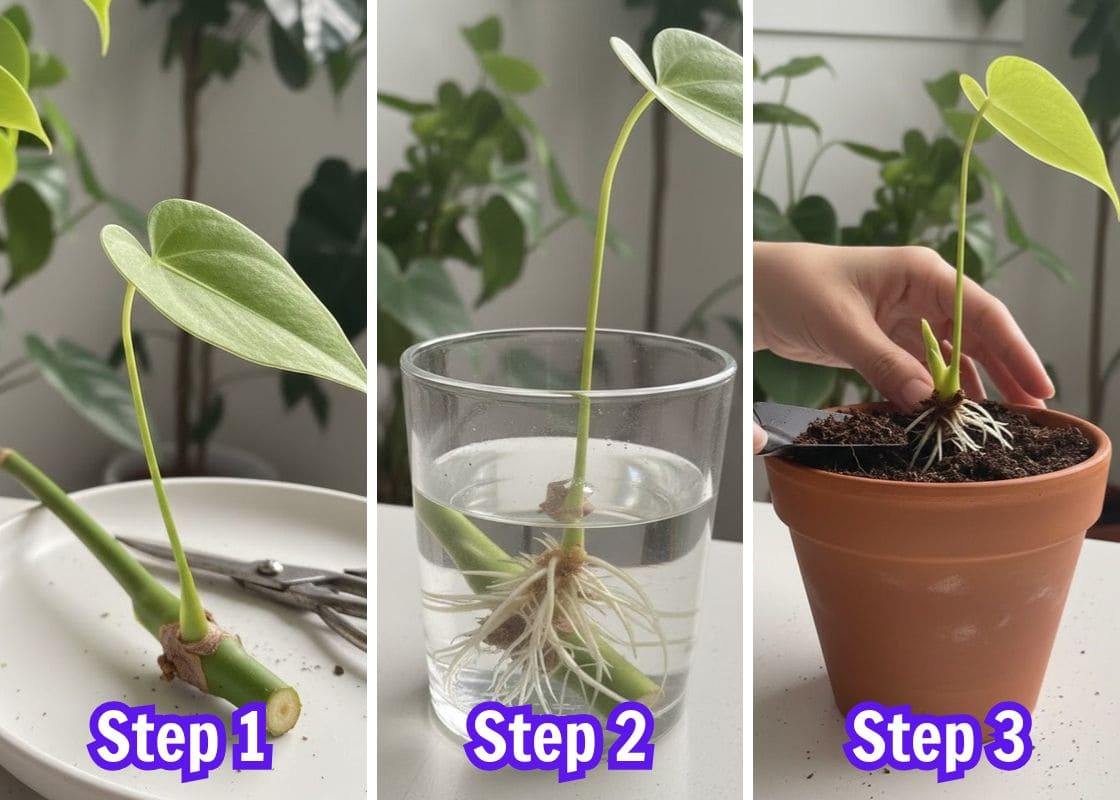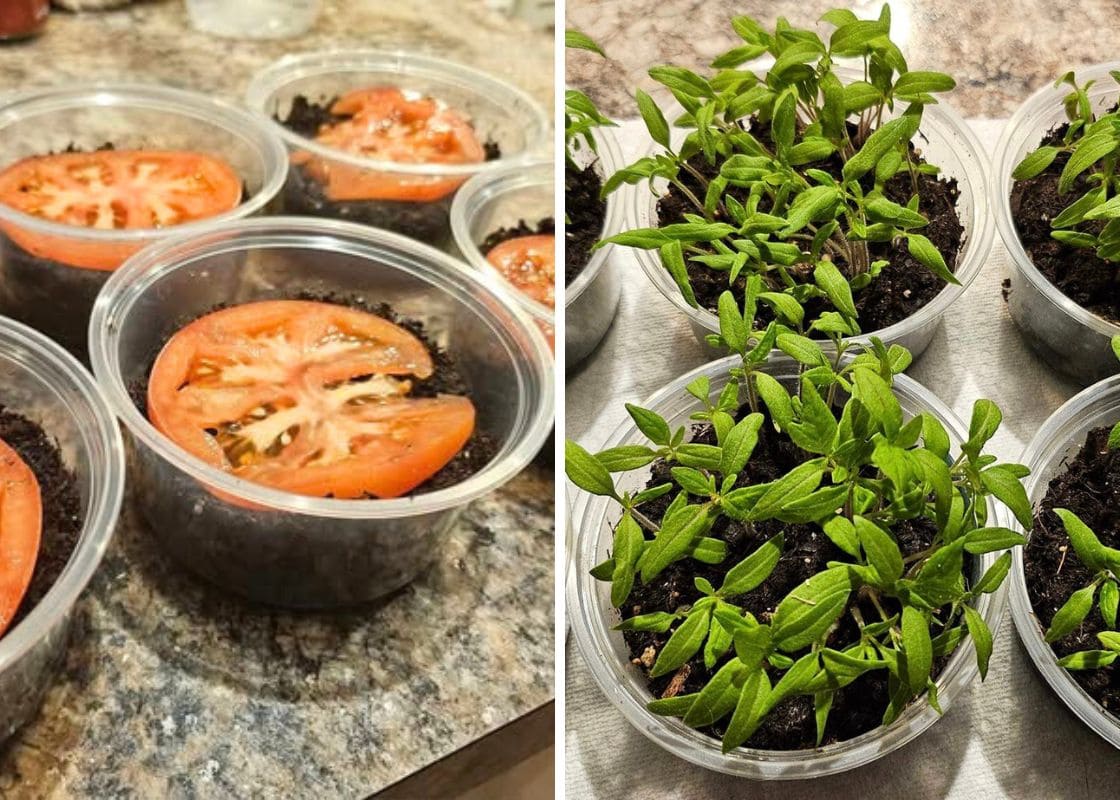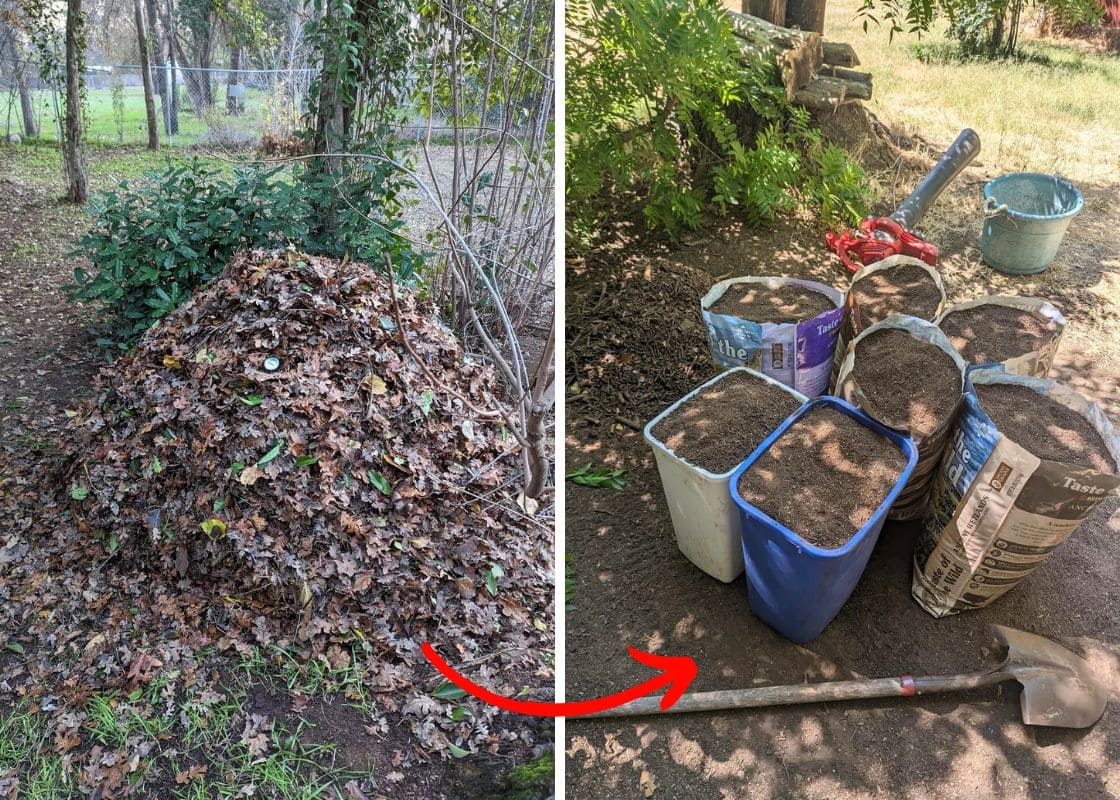Imagine stepping into your garden, gently squeezing a vibrant red pinecone, and watching it release a clear, fragrant juice that instantly softens your hair and soothes your skin.
This isn’t just a dream, it’s the beauty of Awapuhi kuahiwi, better known as shampoo ginger.
For generations, people in Hawaii and other tropical regions have used its nourishing juice as an all-natural cleanser and conditioner. And now, more gardeners and natural beauty lovers around the world are rediscovering this tropical gem.
What Is Awapuhi Kuahiwi?
Zingiber zerumbet, commonly called Awapuhi kuahiwi, pinecone ginger, or shampoo ginger, is a tropical perennial native to Southeast Asia.
It found its way to Hawaii centuries ago with Polynesian voyagers, where it became deeply embedded in traditional healing and grooming practices.
The plant itself resembles other gingers: long, narrow green leaves form a lush cluster, but the showstopper is the cone-like flower head.
These bracts mature into a glossy, red pinecone that, when gently squeezed, releases a clear, lightly scented juice, what locals call Awapuhi juice.
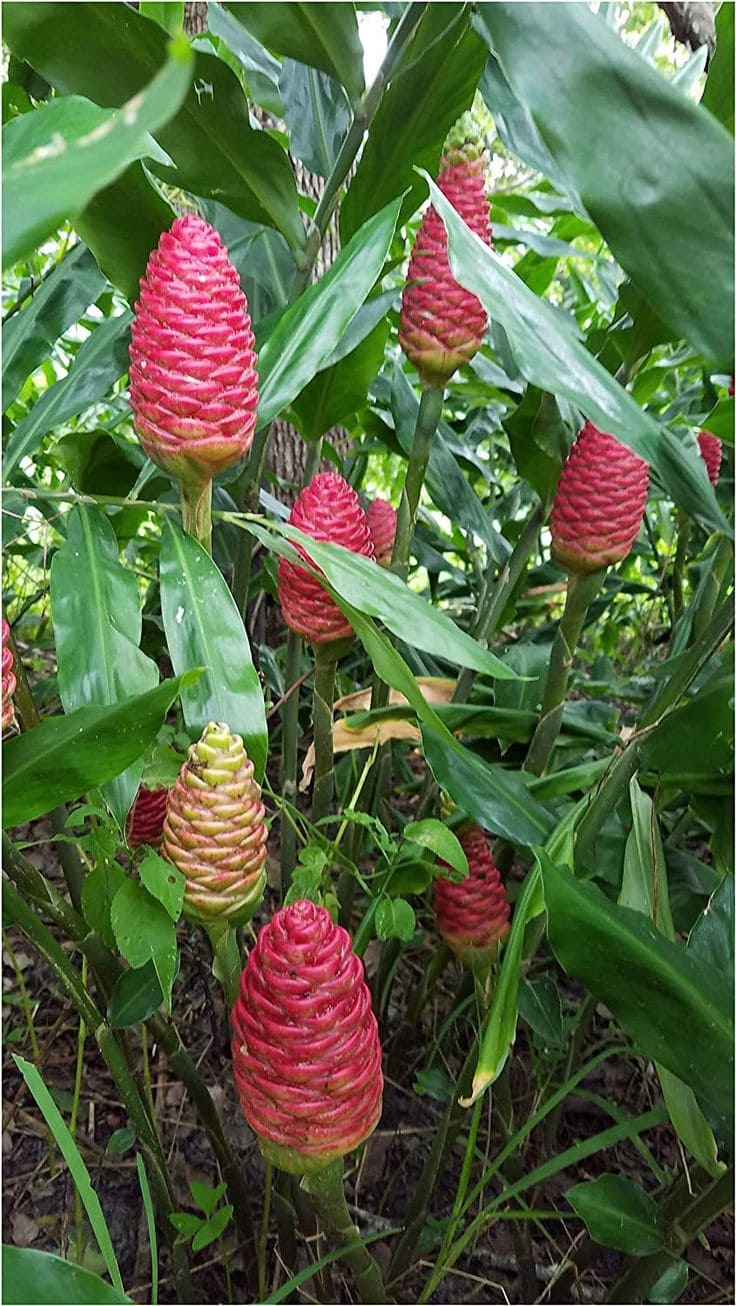
Historically, this juice was used as a shampoo, scalp rinse, and skin moisturizer. Even today, you’ll find Awapuhi extract listed as a featured ingredient in some salon shampoos and luxury haircare lines.
But the real magic is that you can grow, harvest, and use this plant at home, all with minimal fuss.
Benefits of Awapuhi Kuahiwi for Hair and Skin
The juice inside Awapuhi’s pinecone isn’t sticky or oily, it’s a silky, mucilaginous liquid packed with moisturizing compounds.
These include naturally occurring surfactants which gently cleanse, along with anti-inflammatory and antioxidant properties that support scalp and skin health.
Plus, it cleans without stripping the hair’s natural oils and leaves hair noticeably softer and shinier.
For skin, it acts as a calming toner or hydrating serum. It’s gentle enough to use on sensitive areas, and some even apply it after shaving or sun exposure.
Unlike many commercial products, there are no harsh additives or preservatives.
How to Grow Awapuhi Kuahiwi at Home
If you live in USDA zones 8-11, you can grow shampoo ginger outdoors year-round. Otherwise, it grows beautifully in large pots and can be overwintered indoors.
Choose a partially shaded spot, morning sun with afternoon shade works best. It prefers rich, well-draining soil and appreciates consistent moisture.
You also need to keep the soil damp but not soggy, especially during the growing season (spring through fall).
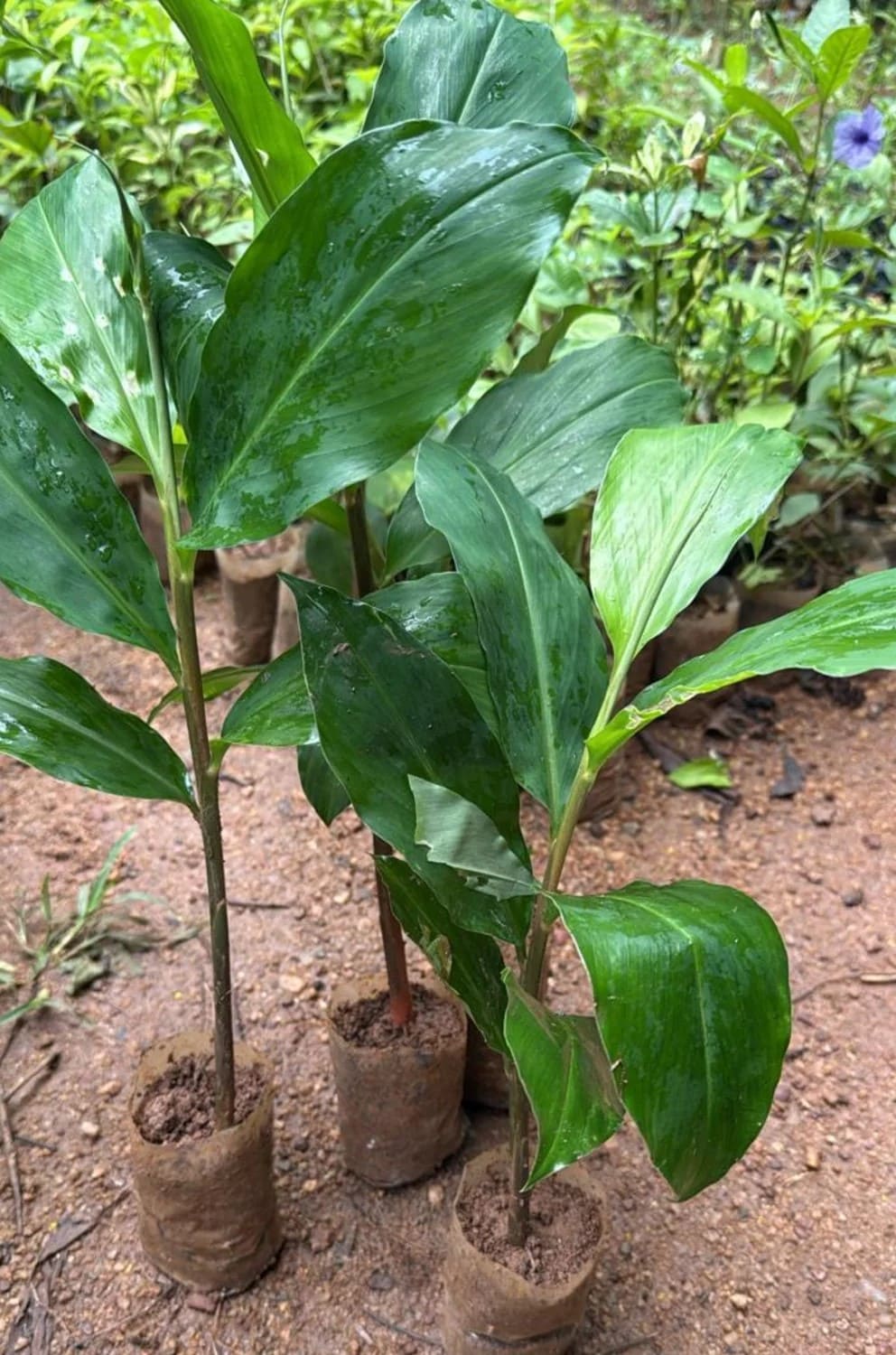
Awapuhi dies back in winter, entering dormancy. Don’t panic as it’s just resting. Reduce watering during this time and resume regular care when new shoots emerge in spring.
The red cones typically appear in late summer to early fall once the plant is mature, usually after the second year.
Harvesting Awapuhi Kuahiwi Juice the Right Way
When the red cones are full and juicy, they’re ready to harvest. Using clean scissors or pruners, cut the cone from the base of the stem. Hold the cone upright over a bowl or cup and gently squeeze.
The juice will flow out easily if the cone is ripe. Some people prefer to remove the juice with a slight twist-and-squeeze motion for maximum yield.
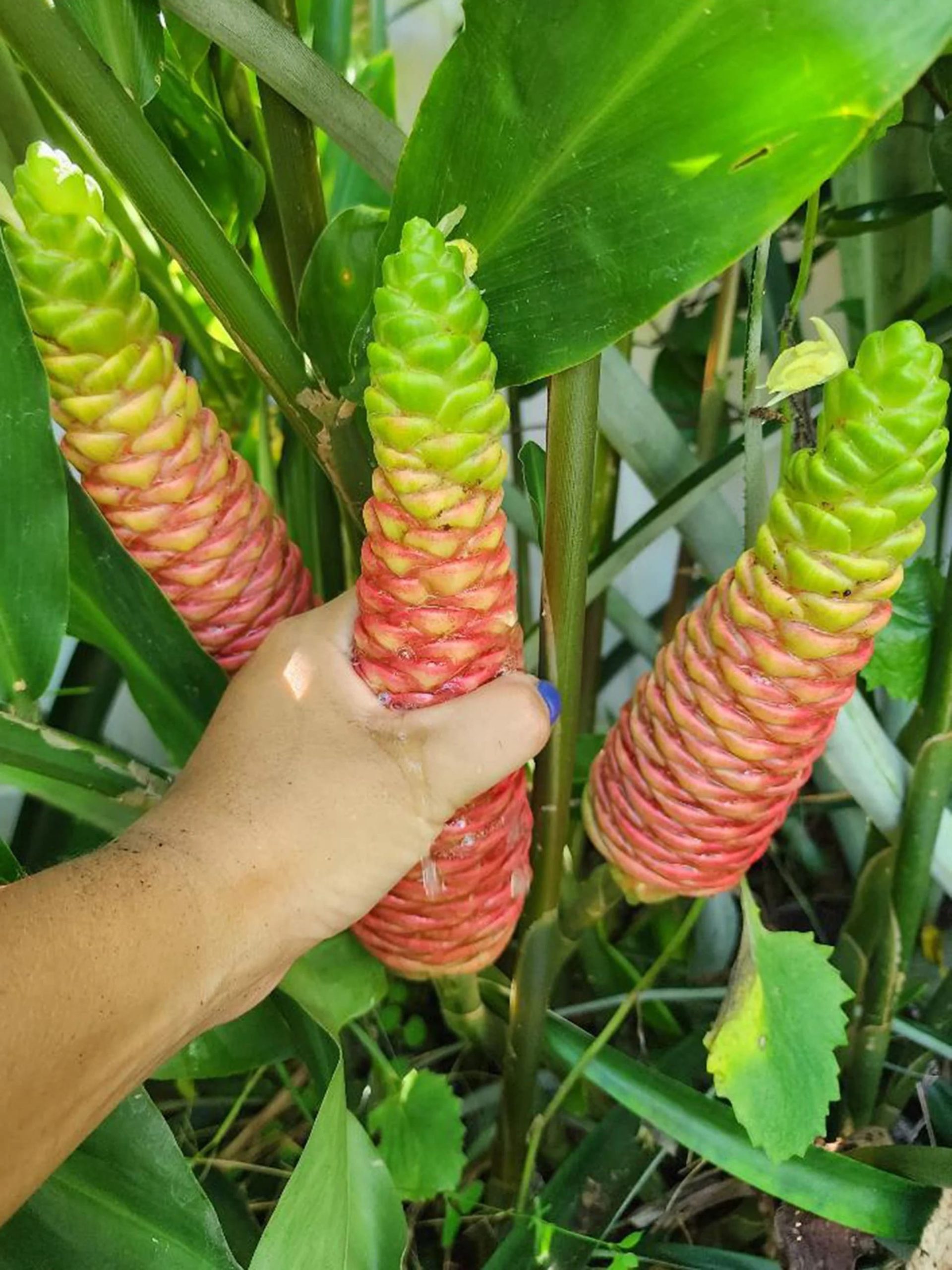
To remove any small particles or bract debris, strain the liquid through a fine sieve or pantyhose.
The juice can be used immediately or stored in the refrigerator for up to two weeks. For longer storage, you can freeze it in ice cube trays, perfect for single-use portions.
Using Awapuhi Kuahiwi Juice on Hair
As a shampoo alternative, apply the juice directly to wet hair and massage it into the scalp and strands. It won’t lather like a soap-based shampoo, but it cleans gently and leaves hair feeling silky.
You need to rinse well and follow with your usual conditioner if needed or skip conditioner altogether and let Awapuhi do the work.
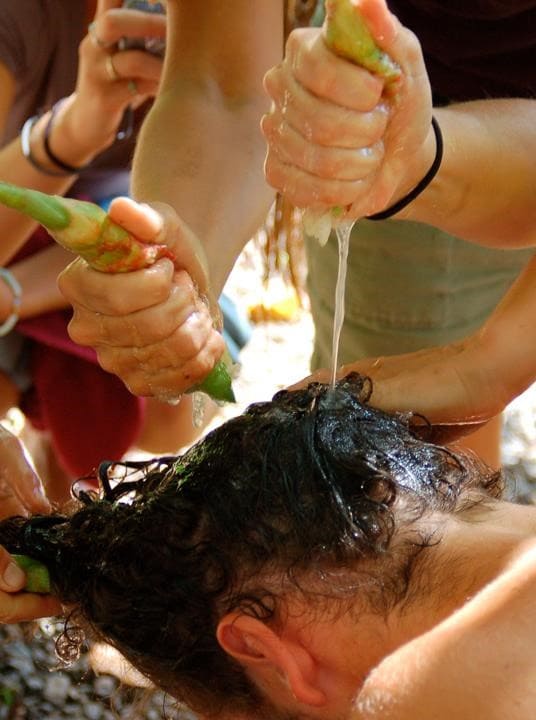
For a leave-in treatment, apply a small amount of the juice to damp or dry hair, especially the ends. It helps reduce frizz and adds natural shine. Those with curly or textured hair often love it as a detangler.
You can also blend it with aloe vera, rose water, or a few drops of essential oil for a customized scalp mist.
Using Awapuhi Kuahiwi Juice on Skin
Awapuhi juice works beautifully as a facial toner or skin hydrator. Just apply a small amount to clean skin using your hands or a cotton pad.
It absorbs quickly and leaves the skin feeling soft. You should use it after sun exposure to cool and calm the skin, or post-shave to prevent irritation and redness.
You can also mix it with a few drops of jojoba or vitamin E oil to create a nourishing facial serum, or combine it with honey and use it as a natural face mask.
Its cooling effect and soothing properties make it a favorite in tropical spa treatments and now you can enjoy it right at home.
FAQs
Can I use Awapuhi on color-treated hair?
Yes, it’s generally safe. In fact, because it’s sulfate-free and non-stripping, many find it helps retain color and moisture. Still, always do a strand test the first time.
Is it safe for children?
Absolutely. It’s gentle and chemical-free. Just avoid contact with the eyes, as with any plant-based rinse.
What does it smell like?
The juice has a light, earthy-sweet scent, some say it’s similar to green tea or fresh herbs. It’s subtle and clean, not overpowering.
Are there any side effects?
Allergic reactions are rare but possible. If you’ve never used Awapuhi before, test a small amount on your inner arm and wait 24 hours. If there’s no reaction, you’re good to go.
